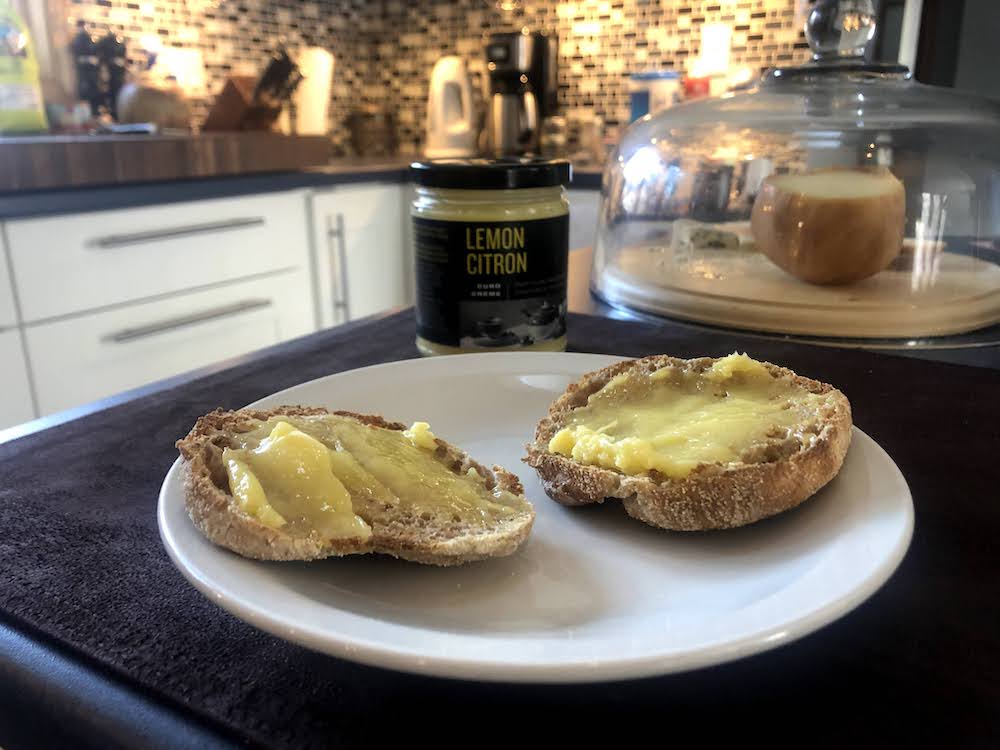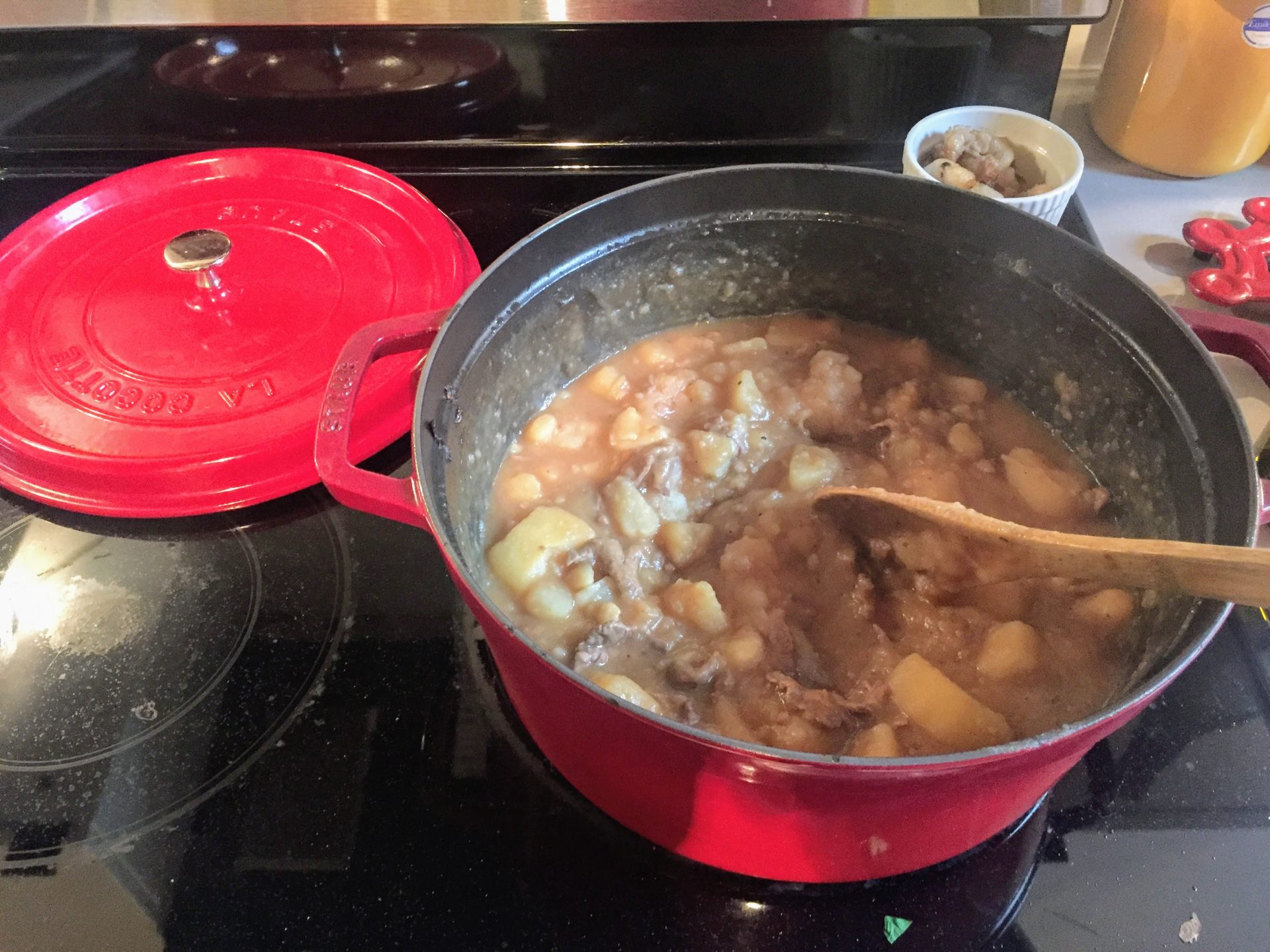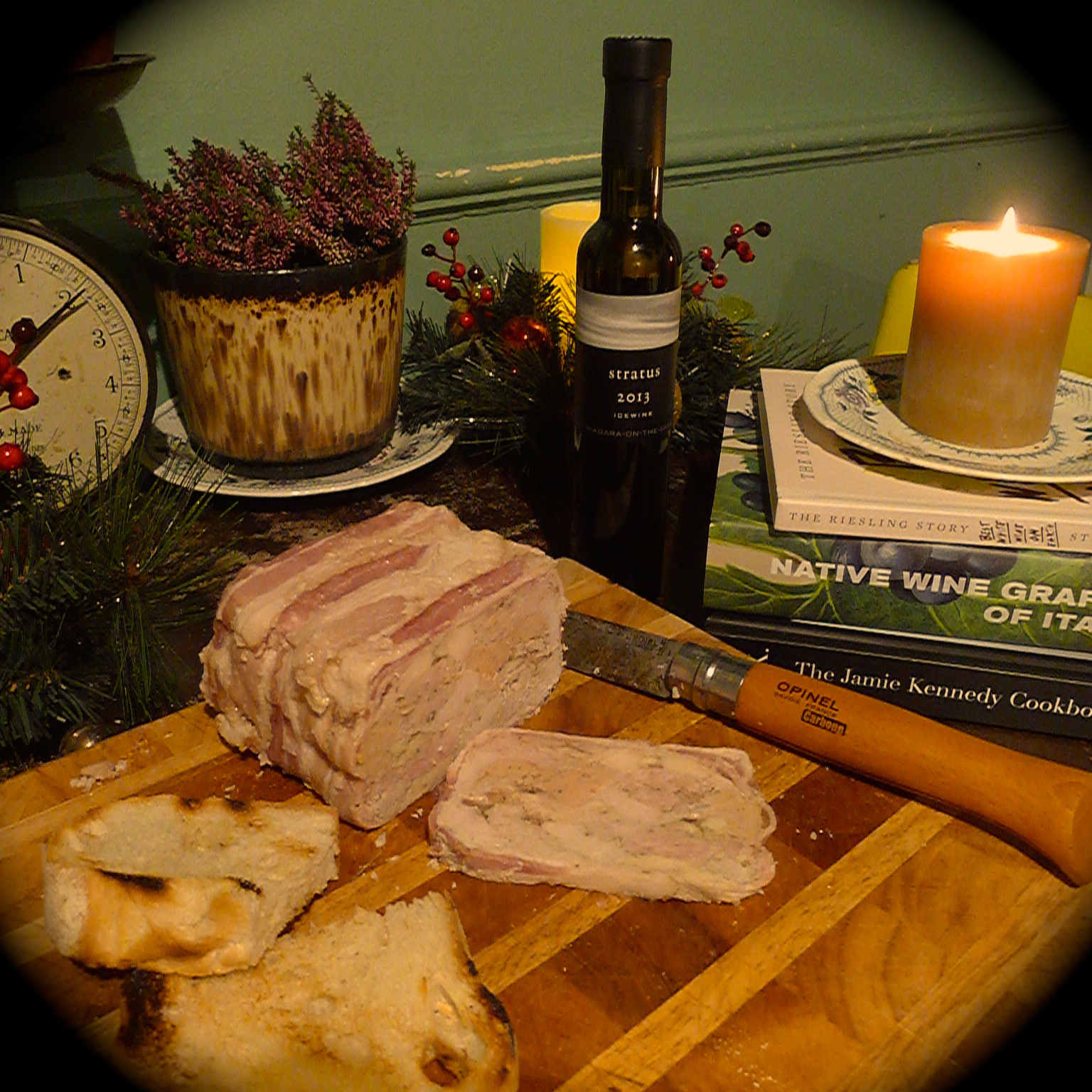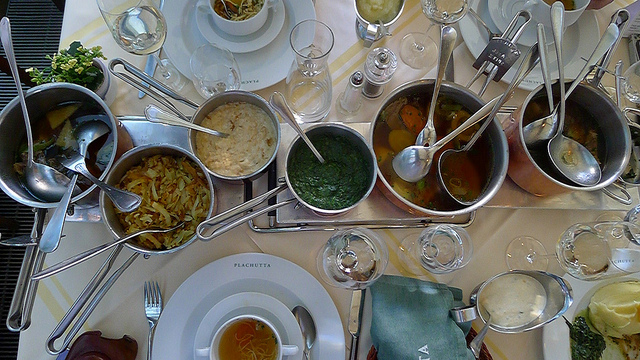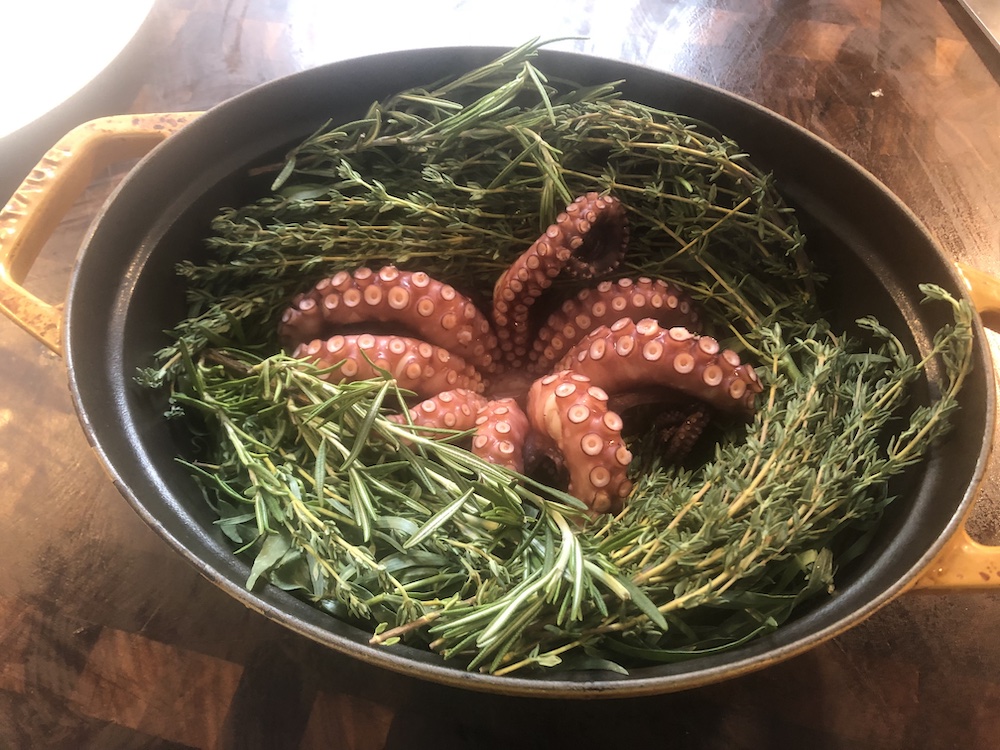
Ready for its three and half hour nap in the oven, an octopus ready to braise in its own juices, nestled in a “nest” of fresh herbs inside my trusty Staub Dutch oven.
After spending a good couple of decades attempting to cook octopus with seriously wildly varying degrees of success, including a good few abject failures, I’ve recently been working on a relatively foolproof method of slowly braising the eight-limbed mollusc with a selection of herbs.
I have been so utterly delighted with the results that I felt it would be only right to share this approach with Good Food Revolution readers. It’s pretty simple, but the end result is some of the most wonderfully flavoured and delightfully tender octopus I have ever experienced.
1- Obtain your octopus. Unless you are near the coast we are probably talking about frozen octopus here. They are usually quite easily obtained from Portuguese stores in Toronto’s west end, or some supermarkets, although be careful as if a store doesn’t have a regular turnover you may find yourself with a funkier smelling one. Discard any octopi that smell even the slightest bit “fishy”. Right now I am picking up some excellent small Moroccan octopi from Ontario Fisheries Products in Collingwood.
2- I usually defrost in the fridge uncovered for two days before cooking.
3- Although it may look clean, be sure to give it a damn good wash under cold water, paying particular attention to the suckers on the tentacles.
4- Set your oven to 200 F (93 C).
5- Bring a large pot of salted water with 1/4 of a lemon to a rolling boil (that’s one that you cannot stir away).
6- Add the octopus to the pot, allow to come back to the boil and leave it in there for around 8 minutes.
7- Remove the octopus to a cutting board and discard the inky water.
8- Carefully remove the entire head of the octopus with a sharp knife and discard.
9- Use the same knife to remove the octopus’ hard and sharp beak/mouth, found at the centre of the underside. Discard.
10- Finally, check for any remaining internal organs and discard.
11- Maybe take your garbage out at this point as I recently discovered that octopus head gets really freaking stinky really quickly in one’s kitchen garbage bin.
12- Get a cast iron Dutch oven and create a “nest” for your octopus (see above). I used parsley, rosemary, tarragon, thyme, and bay/laurel leaves, but many woodier herbs work here. I just found this to be the best mix for my palate.
13- If you have any seven to twelve year old children (or manchildren friends) who likes Star Wars stuff perhaps call them through to the kitchen and show them your “Sarlacc Pit“. For bonus points maybe place a Boba Fett Lego mini-figure struggling to get out of the Sarlacc’s gaping maw.
14- Remember to remove the Boba Fett Lego mini-figure if you have followed the last step.
15- Place you octopus in the “nest” and put the lid on your Dutch oven before placing it on the middle rack of your oven.
16- If you have a smaller octopus under 1.5lbs cook for 3hrs 15mins, above that add another 30mins.
17- While the octopus braises in its own juices and your kitchen fills with the glorious smells of the sea wrapped in smokey herbs, boil up some 1cm thick slices of new potato, drain and set aside, being sure to keep them warm.
18- In a bowl mix together 2 cloves of crushed garlic, 1 teaspoon of good sweet smoked paprika, salt and pepper, then slowly add around 1/3 of a cup of good extra virgin olive oil (decent oil makes a huge difference here).
19- Take the cast iron from the oven and remove the octopus carefully, discarding the now soggy herbs.
20- On a cutting board, carefully cut the tentacles into bite-sized pieces and place in the bowl of your garlic/paprika oil, mixing to coat the pieces well.
21- Serve the warm octopus scattered over a bed of the hot new potato slices, and give the dish a couple of good squeezes of fresh lemon.
22- Done. Now bask in the gratitude of your fellow diners.
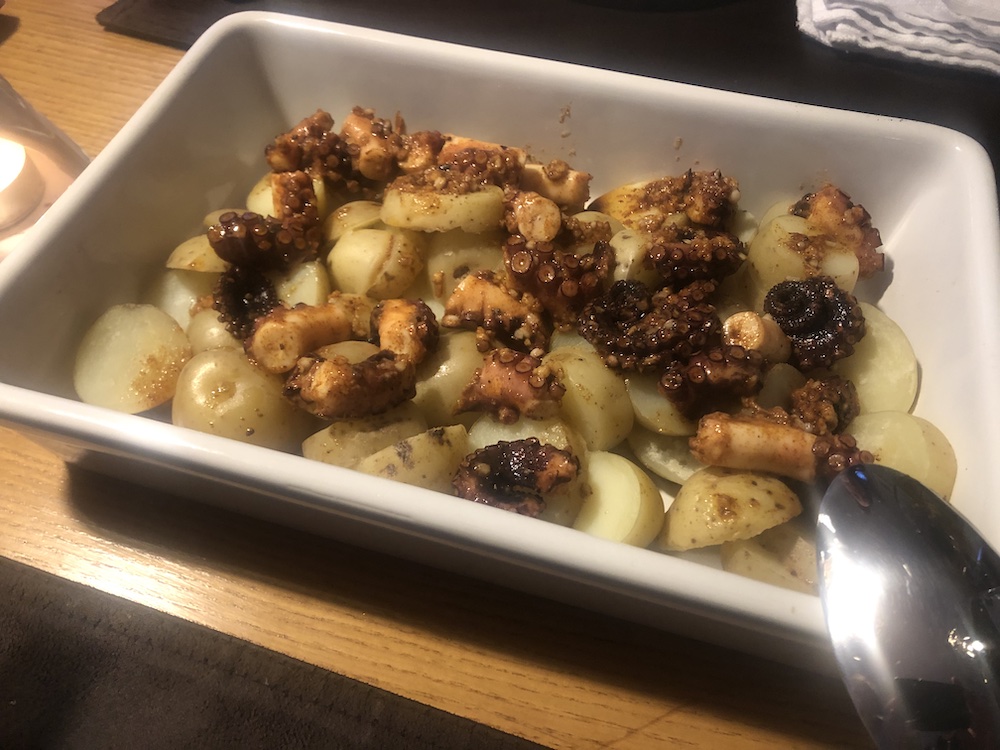
And that’s it, some of the most deliciously tender octopus one can experience.



